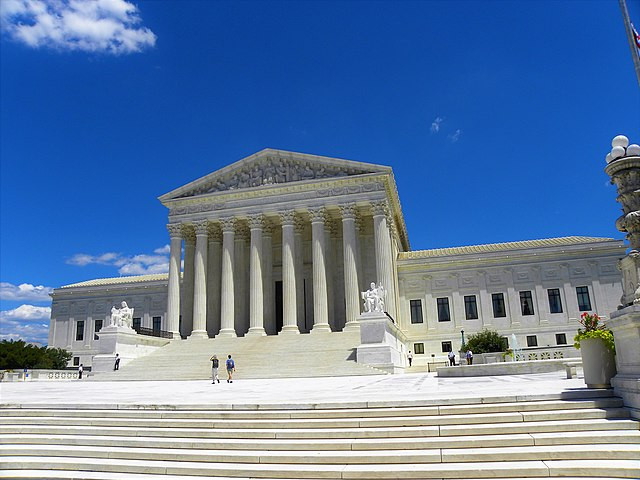The Supreme Court on Friday ruled in favor of Joseph Fischer, a former police officer involved in the January 6, 2021, Capitol riot, by narrowing the application of a federal obstruction statute. This ruling could impact numerous cases stemming from the infamous event.
The Supreme Court's 6-3 decision, cutting across ideological lines, determined that the obstruction statute under which Fischer was charged should be applied more narrowly than prosecutors had contended. Chief Justice John Roberts, writing for the majority, stated that the government's broad interpretation of the law "defies the most plausible understanding" of the statute in question, 18 U.S. Code 1512. This provision, enacted as part of the Sarbanes-Oxley Act of 2002, was originally intended to address evidence tampering, not the broader range of actions the Justice Department sought to include.
The ruling directs the lower courts to reassess Fischer's case under this new, narrower interpretation. This decision could affect the prosecutions of hundreds of defendants, including former President Donald Trump, who have been charged with obstructing an official proceeding in connection with the January 6 riot.
Attorney General Merrick Garland expressed disappointment, stating the ruling "limits an important federal statute that the department has sought to use to ensure that those most responsible for that attack face appropriate consequences." However, he stressed that the decision would not affect the majority of cases related to the January 6 insurrection.
The majority opinion, joined by five other justices, including Justice Ketanji Brown Jackson, found that the government's broad application would "criminalize a broad swath of prosaic conduct," potentially exposing activists and lobbyists to severe penalties. To prove obstruction, prosecutors must now show that the defendant "impaired the availability or integrity for use in an official proceeding of records, documents, objects, or other things used in the proceeding."
In a concurring opinion, Justice Jackson emphasized that Fischer's conduct could still be prosecutable under the revised interpretation, noting that the joint session of Congress on January 6 clearly involved certain records and documents, such as electoral votes.
Justices Sonia Sotomayor, Elena Kagan, and Amy Coney Barrett dissented. Barrett argued that the statute's expansive language was intentionally broad, criticizing the majority for undermining the legislative intent. "By atextually narrowing §1512(c)(2), the Court has failed to respect the prerogatives of the political branches," she wrote.
While the ruling may influence Fischer's case, prosecutors have indicated that former President Trump's conduct would still fall under the statute's narrower interpretation. Trump faces four charges in his election interference case, including obstruction of an official proceeding and conspiracy to do so. The Supreme Court is also considering Trump's claim of presidential immunity, which could further affect the charges against him.
Joseph Fischer, a former police officer from North Cornwall Township, Pennsylvania, was one of over 300 individuals charged with obstruction of an official proceeding due to their involvement in the Capitol riot. Fischer's lawyers argued that the obstruction statute should not apply to his actions, which they contended were outside the scope of the law designed for evidence tampering.
Approximately 247 cases out of the more than 1,400 January 6 prosecutions could be affected by the Fischer ruling. Among these, only 52 involve obstruction as the sole felony offense, with just 27 defendants currently serving sentences for this charge. Judges have already been considering the pending Supreme Court decision in their rulings, indicating that convictions for other felonies, such as assaulting an officer, would remain unaffected.
Attorney General Garland reiterated the DOJ's commitment to holding those responsible for the January 6 attack accountable, despite the Supreme Court's decision. He assured that the department would comply with the ruling while continuing to pursue other charges where applicable.
The case now returns to the D.C. Circuit Court of Appeals, which will determine if Fischer's actions meet the criteria under the narrowed interpretation of the obstruction statute. The Justice Department must decide whether to continue prosecuting defendants under the new legal framework or to drop the obstruction charges entirely in cases where it is the sole offense.






